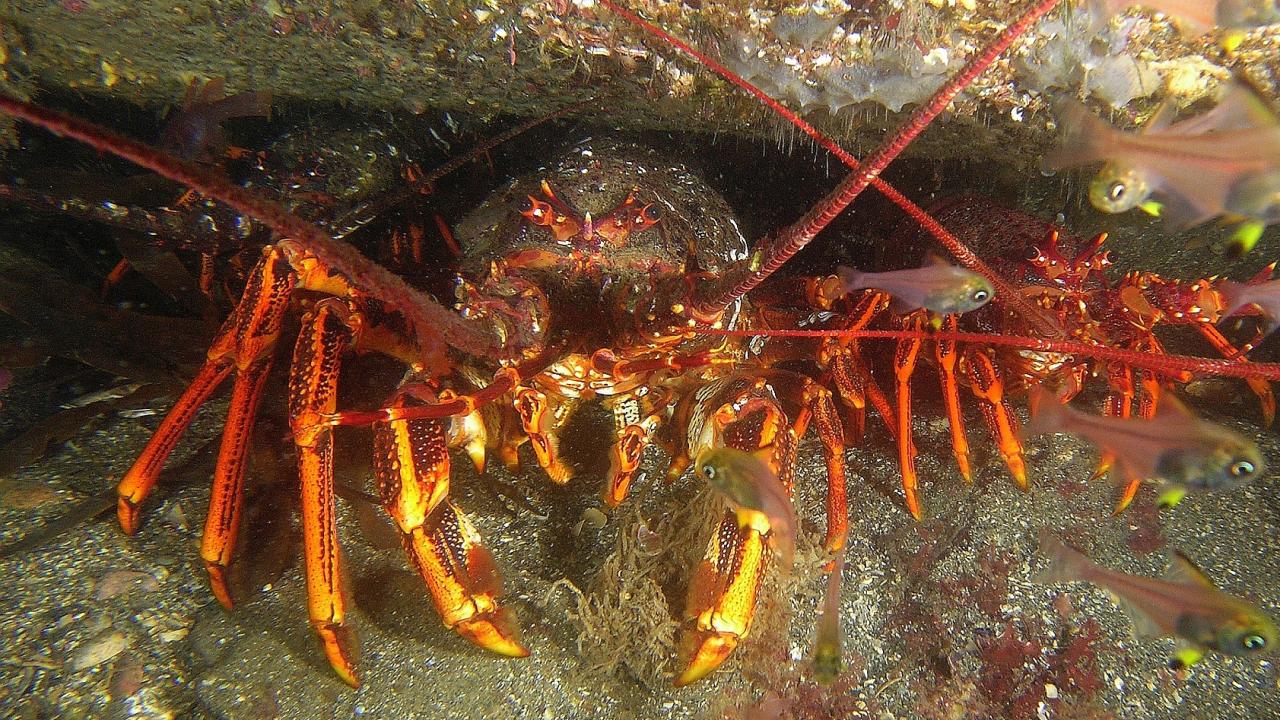Commercial rock lobster fishing paused in parts of the state

Commercial rock lobster fishing in waters south of the D’Entrecasteaux Channel has been paused on the eve of the start of the season to protect Tasmania’s export markets from bans because of potential residue from antibiotics used on farmed salmon, Premier Jeremy Rockliff said.
The rock lobster season for waters outside of the East Coast Stock Rebuilding Zone began on November 15.
But a public notice from the Department of Natural Resources and Environment was issued the day before declaring that lobster fishing in seas off the south-east of Tasmania - commencing at the high-water marks of Scott Point to the northernmost point of Partridge Island, as well as other areas extending to Butlers Beach, Southport Bluff and Roaring Beach - was paused.
The notice came in the aftermath of aquaculture companies with salmon pens in the area being approved to use the antibiotic florfenicol on fish.
It is hoped the antibiotic will help farmed salmon fend off Piscirickettsia salmonis, a bacteria that was one of the primary factors in a mass mortality event in southern Tasmania earlier this year, which saw an estimated 10 tonnes of fish die.
Following the florfenicol approval, Tasmania’s Director of Public Health, Mark Veitch, recommended recreational fishers consider not eating fish caught within 3km of a salmon pen treated with florfenicol.
“Eating fish caught 3 kilometres away will not completely remove the chance of consuming antibiotic residues,” Dr Veitch said.
“However, it is reasonable to assume that the closer a fisher is to a pen being treated – during and shortly after treatment – the more likely it is they may catch a fish with traces of florfenicol.
“After 21 days, it is very unlikely that wild fish – even those caught within 3 kilometres of treated pens – will have any detectable traces of florfenicol.”
Mr Rockliff told a parliamentary committee on Monday that the closure of the fishery in the D’Entrecasteaux Channel was to ensure there were no export bans on Tasmanian rock lobster.
“This is a matter for safeguarding export market access, given the sensitivities, as you will appreciate, in certain parts of our export market,” he said.
“There are no reports of adverse human health effects from exposure to traces of florfenicol in meat or fish.
“However, recreational fishers may choose to avoid exposure to antibiotic residues in the fish that they catch and eat.”
Mr Rockliff said the pause of commercial rock lobster fishing in the D’Entrecasteaux Channel was a short-term precautionary measure.




Add new comment